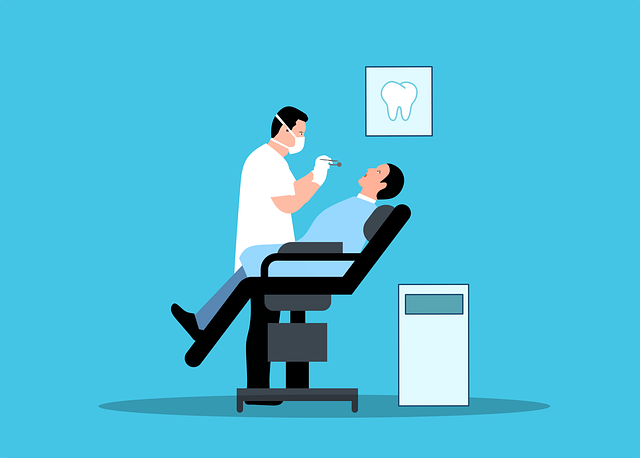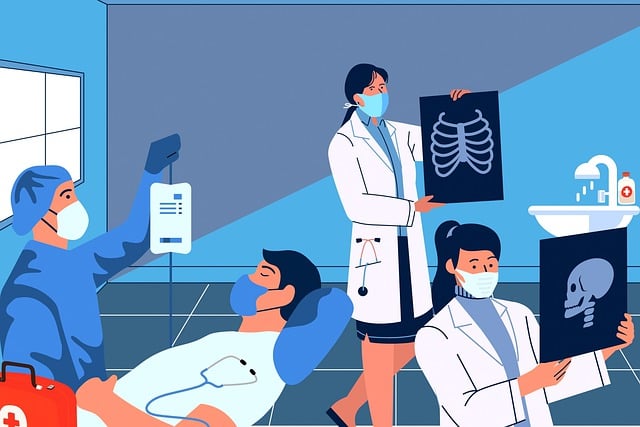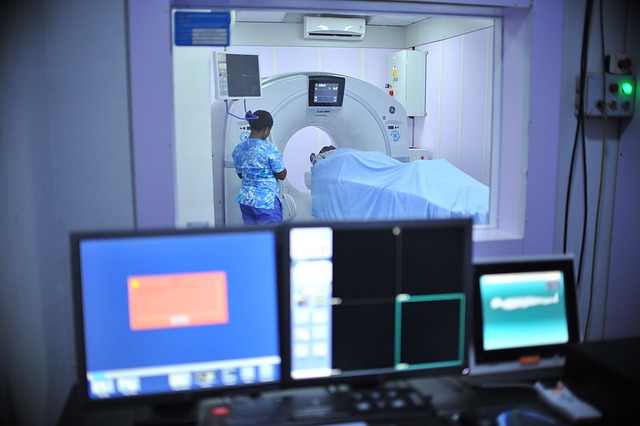In today's healthcare, a shift towards personalized care driven by understanding individual biological makeups is evident. Regenerative imaging, using technologies like fMRI and NIRS, offers non-invasive visualization of brain activity, blood flow, and tissue oxygenation for holistic treatment planning. Advanced imaging technology and non-invasive diagnostics empower healthcare professionals to assess tissue health, monitor disease progression, and tailor interventions in regenerative medicine. This precision imaging approach enhances patient outcomes by providing detailed regenerative diagnostic services without the risks of invasive procedures.
In today’s quest for personalized healthcare, holistic diagnostic services are emerging as a game-changer. This shift towards understanding the intricate interplay between mind, body, and spirit demands advanced techniques like regenerative imaging, which complement traditional methods. Advanced imaging technology, from precision diagnosis to targeted treatment, is reshaping patient care. Non-invasive diagnostics further enhance this revolution, offering benefits in regenerative medicine. By integrating these diverse medical imaging tools, healthcare providers can deliver effective, holistic diagnostic services tailored to individual needs.
- Understanding Holistic Diagnostic Services: A Shift Towards Personalized Care
- The Role of Regenerative Imaging in Modern Medicine
- Advanced Imaging Technology: Unlocking Precision Diagnosis and Treatment
- Non-Invasive Diagnostics: Benefits and Applications in Regenerative Medicine
- Integrating Medical Imaging Tools for Effective Regenerative Diagnostic Services
Understanding Holistic Diagnostic Services: A Shift Towards Personalized Care

In today’s evolving healthcare landscape, a significant shift is taking place towards personalized care, where understanding an individual’s unique biological makeup is key to effective treatment. Holistic diagnostic services play a pivotal role in this paradigm change by offering a comprehensive approach to evaluating patients’ health. This involves integrating advanced imaging technology and non-invasive diagnostics to uncover intricate details about the body’s functional dynamics. With regenerative medicine gaining traction, these diagnostic tools have become even more crucial, enabling practitioners to tailor treatments with precision.
Regenerative imaging, for instance, goes beyond traditional medical imaging tools by providing detailed insights into an individual’s cellular and tissue health. This enables healthcare professionals to detect subtle imbalances or abnormalities that might be missed through conventional means. Advanced imaging technologies, such as functional MRI (fMRI) and near-infrared spectroscopy (NIRS), offer non-invasive ways to visualize brain activity, measure blood flow, and assess tissue oxygenation, all of which are valuable in regenerative treatment planning. By combining these diagnostic tools, healthcare providers can create personalized care plans that not only address symptoms but also target the underlying causes, fostering a holistic approach to healing.
The Role of Regenerative Imaging in Modern Medicine

In modern medicine, regenerative imaging is playing a transformative role, serving as a cornerstone in the pursuit of personalized care. This advanced imaging technology goes beyond traditional diagnostic tools, offering non-invasive diagnostics that provide detailed insights into a patient’s physiological and structural landscape. With precision imaging techniques, healthcare professionals can now visualize the body at a cellular level, enabling them to identify subtle changes, monitor disease progression, and assess the effectiveness of regenerative treatments.
Regenerative diagnostic services leverage these advanced medical imaging tools to facilitate personalized care plans. By integrating comprehensive imaging for regenerative treatment into clinical practices, doctors can make more informed decisions, tailor interventions to individual needs, and ultimately enhance patient outcomes. This shift towards precision imaging is a game-changer in healthcare, ensuring that treatments are effective, targeted, and aligned with the unique biological characteristics of each patient.
Advanced Imaging Technology: Unlocking Precision Diagnosis and Treatment

Advanced Imaging Technology is transforming the landscape of healthcare, serving as a cornerstone in holistic diagnostic services and personalized care. These cutting-edge tools go beyond conventional medical imaging, offering profound insights into the human body’s intricate structures and functions. With their precision capabilities, they unlock doors to accurate diagnosis and tailored treatment plans, pivotal in the field of regenerative medicine.
Regenerative Imaging, an innovative application of advanced imaging technology, provides non-invasive diagnostics that facilitate the assessment of tissue health and regeneration potential. This approach leverages state-of-the-art medical imaging tools to create detailed images, enabling healthcare professionals to visualize and monitor the body’s response to regenerative therapies effectively. As a result, precision imaging empowers practitioners to design interventions that optimize healing and restoration, enhancing overall patient outcomes.
Non-Invasive Diagnostics: Benefits and Applications in Regenerative Medicine

Non-Invasive Diagnostics play a pivotal role in the realm of regenerative medicine, offering a multitude of benefits and applications that enhance personalized care. These advanced imaging technologies provide a non-invasive approach to evaluating and monitoring patients, which is crucial for precise diagnosis and effective treatment planning. Unlike traditional diagnostic methods, non-invasive diagnostics enable healthcare professionals to gain valuable insights into the body’s intricate structures and functions without the risks associated with surgical procedures.
In regenerative medicine, precision imaging becomes an indispensable tool. It allows doctors to visualize and assess tissue regeneration, organ development, and cellular activity in real time. Advanced imaging technology, such as magnetic resonance imaging (MRI), ultrasound, and computed tomography (CT) scans, provides detailed regenerative imaging, enabling the identification of structural abnormalities, tracking treatment progress, and tailoring interventions for optimal patient outcomes. This non-invasive approach not only improves diagnostic accuracy but also facilitates personalized treatment strategies, ultimately fostering a more holistic and effective healing process.
Integrating Medical Imaging Tools for Effective Regenerative Diagnostic Services

Integrating Medical Imaging Tools for Effective Regenerative Diagnostic Services
In the realm of regenerative medicine, advanced imaging technology plays a pivotal role in delivering personalized care. Regenerative imaging goes beyond conventional diagnostic methods by offering non-invasive means to visualize and assess tissue regeneration, an essential aspect of precision imaging. With the aid of cutting-edge tools, healthcare professionals can now gain deeper insights into the body’s intricate processes, enabling them to tailor regenerative treatments with unprecedented accuracy.
These diagnostic tools in regenerative medicine facilitate the early detection of structural changes and cellular activities that are crucial for successful treatment outcomes. By combining various imaging modalities, such as magnetic resonance imaging (MRI), ultrasound, and optical techniques, healthcare providers can create a comprehensive picture of the body’s response to regenerative interventions. This holistic approach ensures that diagnostic services are not just accurate but also contribute to developing effective strategies for optimal patient recovery.
Holistic diagnostic services powered by advanced technologies like regenerative imaging and sophisticated medical imaging tools are transforming personalized care. By integrating non-invasive diagnostics and precision imaging techniques, the field of regenerative medicine is able to offer more effective, targeted treatments. These innovative approaches not only enhance diagnostic accuracy but also contribute to improved patient outcomes, setting a new standard in healthcare. As technology continues to evolve, the future of regenerative diagnostic services looks promising, paving the way for even more personalized and successful therapeutic interventions.
